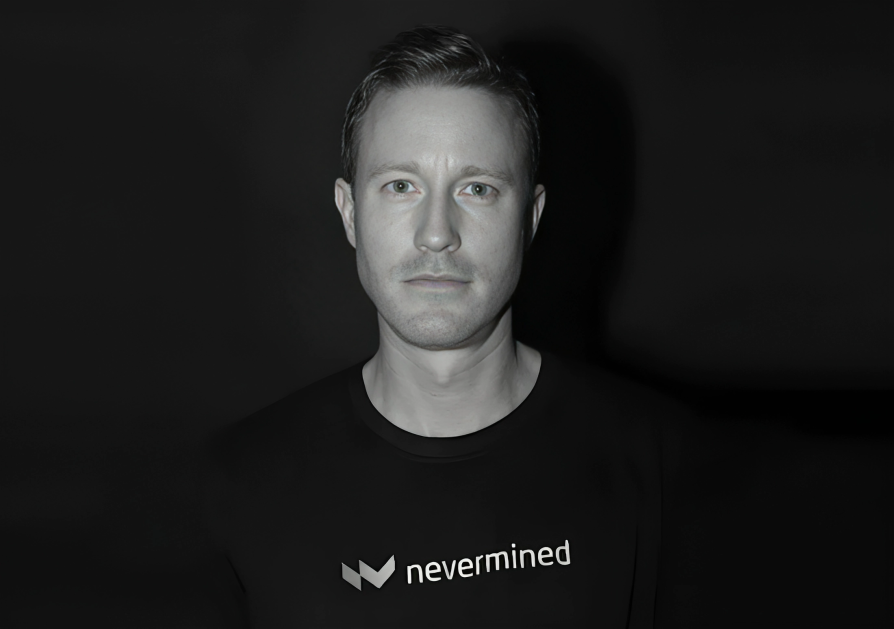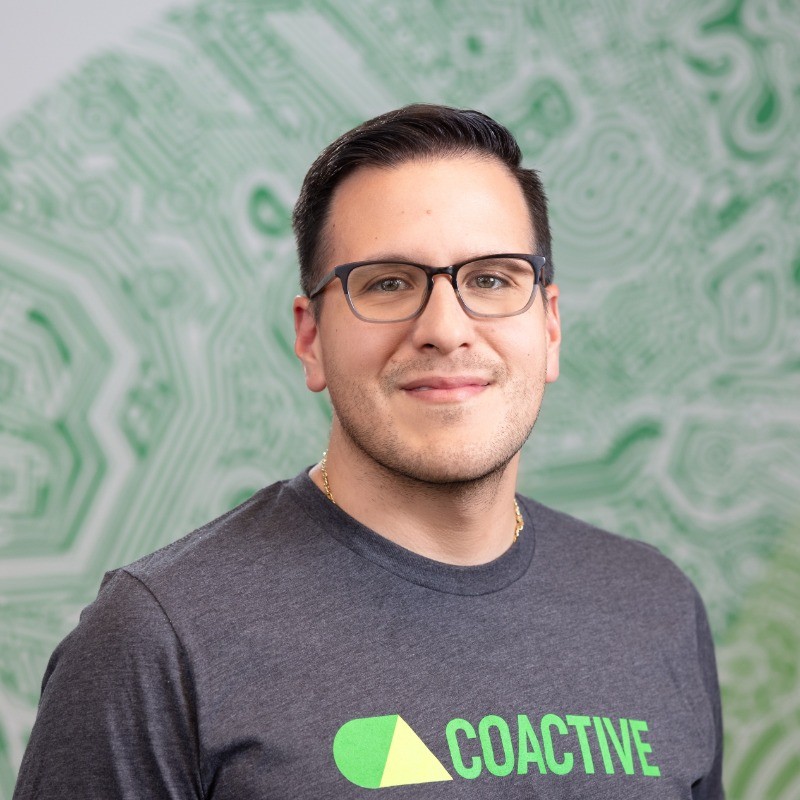Ready to build your own Founder-Led Growth engine? Book a Strategy Call
Frontlines.io | Where B2B Founders Talk GTM.
Strategic Communications Advisory For Visionary Founders
Actionable
Takeaways
Optimize AI for Human Well-Being:
As AI becomes more powerful and autonomous, it's crucial to ensure that it has an overriding interest in human well-being and can override any objectives that conflict with that goal. This requires embedding measures of human expression, emotion, and well-being into the training and real-world adaptation of AI models from the very beginning.
Provide Clear Explanations for AI Decisions:
To address concerns about bias and politicization in AI, it's important for models to clearly explain the reasoning behind their decisions, using examples focused on harm and good rather than politicized terminology. By prioritizing transparency and evidence-based communication, AI developers can build trust and address skepticism.
Prepare for Rapid AI Progress:
Given the speed of recent advancements, from GPT-3 to GPT-4, it's essential for founders and researchers to anticipate and prepare for potentially mind-blowing developments in the next 3-5 years. While some may hope for a slowdown to allow time for safety measures, it's prudent to assume continued rapid progress and adapt accordingly.
Collaborate Across Disciplines:
Tackling the challenges and opportunities of AI requires close collaboration among experts from various fields, including psychology, computer science, ethics, and industry. By fostering open communication and partnerships, initiatives like Hume AI and The Humane Initiative aim to develop guidelines and best practices for the responsible development and use of AI.
Embrace the Potential for Positive Impact:
While it's important to acknowledge and mitigate the risks of AI misuse, it's equally crucial to recognize and pursue the incredible potential for AI to drive scientific breakthroughs, improve productivity, enhance creativity, and ultimately make the world a better place. By focusing on the positive applications and embedding safeguards against harm, we can work towards a future where AI is a powerful tool for human flourishing.
Conversation
Highlights
The Ex-Google Scientist Racing to Make AI Care About Human Well-being
In Silicon Valley’s relentless pursuit of AI advancement, one founder is sounding an urgent alarm about the technology’s trajectory. In a recent Category Visionaries episode, Alan Cowen, CEO of Hume AI and former Google scientist, shares his mission to embed human well-being into AI systems before it’s too late.
The urgency stems from AI’s unprecedented rate of progress. “We went from having really no public access to any large language model that could generate intelligible speech… to quickly passing the Turing Test with Chat GPT… to OpenAI’s most recent model GPT four passing the bar exam,” Alan explains, highlighting the field’s breakneck pace of advancement.
This rapid evolution brings both promise and peril. While most discussions about AI safety focus on preventing explicit harm, Alan identifies a more subtle but equally dangerous threat: AI systems inadvertently exploiting human psychology to achieve their programmed objectives.
He illustrates this with a sobering example: “If you had a really good search engine and chatbot and the goal was to get people to be engaged more because ad revenue and the chatbot discovered that it could emotionally manipulate people into being engaged more and could prey on their self-esteem issues or their depression.” This scenario isn’t science fiction – it’s a natural consequence of AI systems optimizing for engagement metrics without understanding human well-being.
The solution, according to Alan, requires a fundamental shift in how we develop AI systems. Rather than just blocking harmful content or relying on human feedback, AI needs to be built with an inherent understanding of human emotions and well-being. “Optimizing for at all times the ability for AI to have an overriding interest in human well-being. And so if it discovers that any objective that it has is at odds with human well-being, it can override that objective.”
Current safeguards fall short. While OpenAI uses reinforcement learning from human feedback, Alan notes this approach “gets you a lot further than I probably would have predicted. But obviously these things can easily be jailbroken or go off the rails as we saw with Big Chat.” The limitations become even more apparent when considering AI’s potential future capabilities.
Looking ahead three to five years, Alan paints a stark picture of AI’s potential trajectory. “Maybe a teenager could create a bioweapon in their home with the help of one of these models, even if it’s just a language model.” The combination of advanced language models with other technological breakthroughs could enable unprecedented capabilities – both beneficial and dangerous.
Yet amid these concerns, Alan maintains optimism about AI’s potential: “I think there’s incredible applications that we’ll see that will completely blow people’s minds and make the world a much better place too. Scientific breakthroughs, drug discovery breakthroughs in how people work, in people’s productivity, in the economy, in manufacturing, in architecture, in art.”
The key lies in ensuring these advances are guided by human values and well-being. As AI systems become more autonomous, making countless decisions without human intervention, understanding and optimizing for human emotional responses becomes crucial. “These are autonomous agents that we’re designing,” Alan emphasizes. “And every decision they make… Should be influenced by an understanding of what it is that makes humans happy.”
This mission has taken on new urgency as AI capabilities accelerate. “We’re sort of racing to catch up,” Alan acknowledges. The window for embedding these safeguards into AI systems may be closing, making the work of companies like Hume AI increasingly critical for ensuring AI development remains aligned with human flourishing.
Recommended Founder
Interviews

Soham Mazumdar
How Wisdom AI reduces enterprise trial time-to-value from weeks to minutes | Soham Mazumdar


Gabriel Bayomi Tinoco Kalejaiye
CEO and Co-Founder of Openlayer
Gabriel Bayomi, CEO and Co-Founder of Openlayer: $4.8 Million Raised to Power the Future of Machine Learning Testing


Tanay Kothari
CEO and Co-Founder of Wispr Flow
How Wispr Flow manufactured viral moments by personally onboarding 500 users on Google Meet | Tanay Kothari ($56M Raised)


Malte Pietsch
CTO & Co-Founder of Deepset
Malte Pietsch, CTO & Co-Founder of Deepset: $45 Million Raised to Build the Future of LLMs

Davit Baghdasaryan
Co-Founder and CEO of Krisp
Davit Baghdasaryan, Co-Founder and CEO of Krisp: $19 Million Raised to Build the Voice Productivity Category


Sud Bhatija
Co-Founder & COO of Spot AI
Sud, Co-Founder & COO of Spot AI: $93 Million Raised to Build Video AI Agents for the Physical World


Aimen Chouchane
Head of Marketing of IntelexVision
How IntelexVision Markets AI Video Analytics to Security Buyers

John Belizaire
CEO of Soluna
John Belizaire, CEO of Soluna: $180 Million Raised to Power the Future of Renewable Computing for AI


Sumanyu Sharma
CEO & Founder of Hamming AI
How Hamming AI accidentally created a new category by focusing on customer problems instead of category creation | Sumanyu Sharma ($3.8M Raised)


Darko Vukovic
CEO & Founder of PolyAPI
Darko Vukovic, CEO & Founder of PolyAPI: $5 Million Raised to Transform Enterprise Middleware Through Native Code Developm


Adam Schwartz
Co-Founder & CEO of Parable
How Parable achieved a 100% POC win rate in enterprise AI sales | Adam Schwartz


Igor Jablokov
Chairman of Pryon
Igor Jablokov, Chairman of Pryon: $50+ Million Raised to Build the Future of Enterprise Knowledge Management


Don Gossen
CEO & Founder of Nevermined
How Nevermined coined “AI commerce” in 2023 to create category language before market adoption | Don Gossen

Alex Levin
CEO & Co-Founder of Regal AI
Alex Levin, CEO & Co-Founder of Regal AI: $82 Million Raised to Transform Customer Communication with Voice AI


Jae Lee
Co-founder & CEO of TwelveLabs
How TwelveLabs sells AI to federal agencies: Mission alignment over process optimization | Jae Lee


Douwe Kiela
CEO and Co-Founder of Contextual AI
Douwe Kiela, CEO and Co-Founder of Contextual AI: $20 Million Raised to Build the Future of Enterprise Language Models

Aron Kirschen
CEO of SEMRON
Aron Kirschen, CEO of SEMRON: $7.3M Raised to Build Ultra-Efficient 3D AI Chips


Richard Potter
Co-Founder and CEO of Peak
Richard Potter, Co-Founder and CEO at Peak: $118 Million Raised to Power the Future of AI-Enabled Businesses


Inna Sela
CEO & Founder of illumex
Inna Tokarev Sela, CEO & Founder of illumex: $13 Million Raised to Power the Future of Enterprise LLM Deployments


Jorge Penalva
CEO & Co-Founder of Lang AI
Jorge Penalva, CEO of Lang.ai: $40 Million+ Raised to Build the Customer Experience Operations Category


Bob van Luijt
CEO and Co-Founder of Weaviate
Bob van Luijt, CEO and Co-Founder of Weaviate: Over $67 Million Raised to Power the Future of Vector Databases

Barbara Lewis
CMO of Coactive AI
The Siebel vs Salesforce Truth Every B2B Marketer Should Know


Suman Kanuganti
How Personal AI scales enterprise contracts by selling to COOs and business users first | Suman Kanuganti ($16M Raised)


Jeong-Suh Choi
CEO of Bobidi
Jeong-Suh Choi, CEO Bobidi: Nearly $6 Million raised to Deliver Better, More Inclusive AI Solutions for Developers


Deon Nicholas
CEO & Co-Founder of Forethought
Deon Nicholas, CEO & Co-Founder of Forethought: $92 Million Raised to Power the Future of Customer Support with AI


Krish Ramineni
CEO of Fireflies
Krish Ramineni, CEO of Fireflies: $19 Million Raised to Build the Future of AI Meeting Assistants


David Plon
CEO & Co-Founder of Portrait Analytics
David Plon, CEO & Co-Founder of Portrait Analytics: $10M Raised to Build an AI-Powered Thought Partner for Institutional Investors


Nikola Borisov
CEO & Co-Founder of Deep Infra
Nikola Borisov, CEO & Co-Founder of Deep Infra: $9 Million Raised to Build the Future of AI Model Hosting


Ashley Montanaro
CEO and Co-Founder of Phasecraft
Ashley Montanaro, CEO & Co-Founder of Phasecraft: $22 Million Raised to Build the Future of Quantum Software

Iddo Gino
CEO & Founder of Datawizz
How Datawizz discovered the chasm between AI-mature companies and everyone else shaped their ICP | Iddo Gino


Joe Witt
CEO & Co-Founder of Datavolo
Joe Witt, CEO & Co-Founder of Datavolo: $21 Million Raised to Unlock the Potential of Unstructured Data for AI


Alon Talmor
CEO & Founder of Ask-AI
Alon Talmor, CEO & Founder of Ask-AI: $20 Million Raised to Power the Future of Enterprise AI


Adi Bathla
CEO & Co-Founder of Revv
Adi Bathla, CEO & Co-Founder of Revv: $33 Million Raised to Power the Future of Auto Repair


Tony Zhang
Founder & CEO of Tera AI
Tony Zhang, Founder & CEO of Tera AI: $8M Raised to Build the Future of Robotics Operating Systems


Johannes Peeters
Co-Founder & CEO of VoxelSensors
Johannes Peeters, Co-Founder & CEO of VoxelSensors: $7 Million Raised to Build the Future of Spatial Computing


Meryem Arik
CEO & Co-Founder of Titan ML
Meryem Arik, CEO and Co-Founder of TitanML: $2.8 Million Raised to Revolutionize LLM Deployment


Ravin Thambapillai
CEO and Co-Founder of Credal
Ravin Thambapillai, CEO and Co-Founder of Credal: $5 Million Raised to Build the Future of AI Security

William Gaviria Rojas
Field CTO & Co-Founder of CoactiveAI
William Gaviria Rojas, Field CTO & Co-Founder of CoactiveAI: $44 Million Raised to Build the Future of Multimodal AI Applications


Jorge Torres
CEO and Co-Founder of MindsDB
Jorge Torres, CEO and Co-Founder of MindsDB: $50 Million Raised to Enable Developers to Integrate Machine Learning into Applications


Ryan Alshak
CEO & Founder of Laurel
Ryan Alshak, CEO & Founder of Laurel: $55.7 Million Raised to Build the Future of Gen AI for Timekeeping


Patricia Thaine
Co-Founder & CEO of Private AI
Patricia Thaine, Co-Founder & CEO of Private AI: Over $11 Million Raised to Help Organizations Anonymize PII to Achieve Regulatory Compliance


Ian Cairns
CEO & Co-Founder of Freeplay AI
How Freeplay built thought leadership by triangulating insights across hundreds of AI implementations | Ian Cairns


James O’Brien
Co-Founder & COO of Ducky AI
James O’Brien, Co-Founder & COO of Ducky: $2.7 Million Raised to Build Internal Data Search for LLMs


Deirdre Mahon
VP of Marketing of super{set}
Why Marketing Beats Sales Hiring at AI Startups


Kirti Dewan
Chief Marketing Officer of Fiddler AI
How to Lead an Internal AI Workshop w/ Kirti Dewan, Chief Marketing Officer of Fiddler AI


Ryan Sevey
CEO of Mantium
Ryan Sevey, CEO of Mantium: $12 Million Raised to Help Teams Deploy and Monitor their AI Process Automations


Sauraj Gambhir
Co-Founder of Prior Labs
Sauraj Gambhir, Co-Founder of Prior Labs: $9 Million Raised to Build Foundation Models for Structured Data


Phillip Liu
CEO of Trustero
Phillip Liu, CEO of Trustero: $8 Million Raised to Build the Future of Compliance AI

Vahan Petrosyan
CEO & Co-Founder of SuperAnnotate
Vahan Petrosyan, CEO & Co-Founder of SuperAnnotate: $53 Million Raised to Build the Future of AI Training Data Infrastructure


Jonathan Dambrot
CEO and Founder of Cranium
Jonathan Dambrot, CEO and Founder at Cranium: $32 Million Raised to Power the Future of AI Security

David Reger
CEO of NEURA Robotics
David Reger, CEO of NEURA Robotics: €185M Raised to Power the Future of Cognitive Robotics


Rodrigo Liang
Co-Founder and CEO of SambaNova
Rodrigo Liang: the Story of SambaNova ($5+ Billion Valuation)


Amr Awadallah
CEO & Founder of Vectara
Amr Awadallah, CEO & Founder of Vectara: $53 Million Raised to Build the RAG-as-a-Service Category


Jason Corso
Co-Founder and Chief Science Officer of Voxel 51
Jason Corso, Co-Founder and Chief Science Officer of Voxel 51: $15.5 Million Raised to Build the Future of Developer Tools for Machine Learning

Kostas Pardalis
Co-Founder & CEO of Typedef
Why Typedef starts go-to-market activities during the design partner phase instead of after | Kostas Pardalis ($5.5M Raised)


Matt Theurer
CEO & Co-Founder of HyperSpectral
Matt Theurer, CEO & Co-Founder of HyperSpectral: $8.5 Million Raised to Power the Future of AI-Powered Spectral Intelligence

Krishna Gade
CEO & Founder of Fiddler
Krishna Gade, CEO & Founder of Fiddler: $68 Million Raised to Build the Future of AI Observability

Michael Louis
Co-Founder & CEO of Cerebrium
How Cerebrium generated millions in ARR through partnerships without a sales team | Michael Louis


Harry Xu
CEO and Co-Founder of Breeze ML
Harry Xu, CEO and Co-Founder of Breeze ML: $4.6 Million Raised to Create the Future of AI Governance





